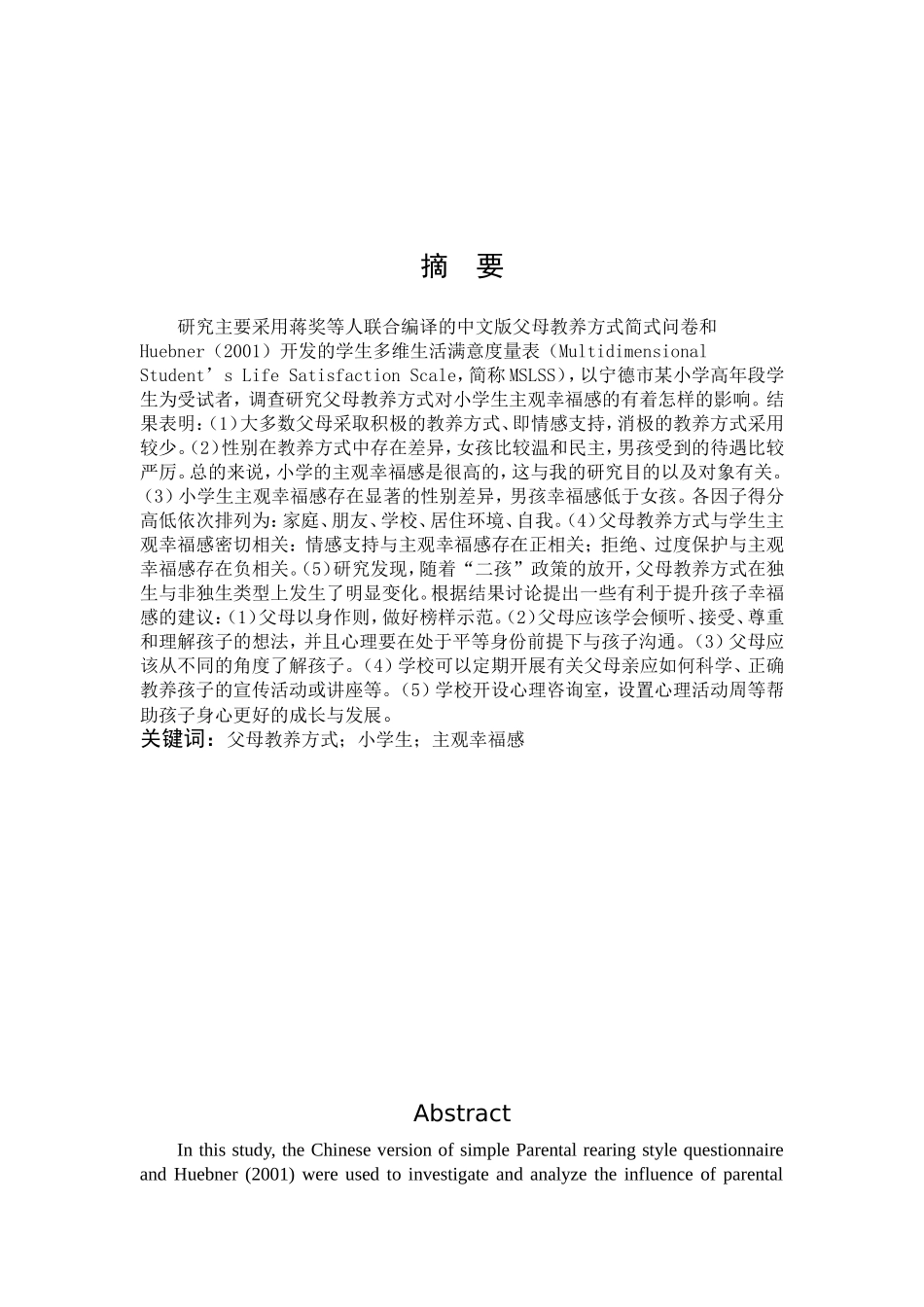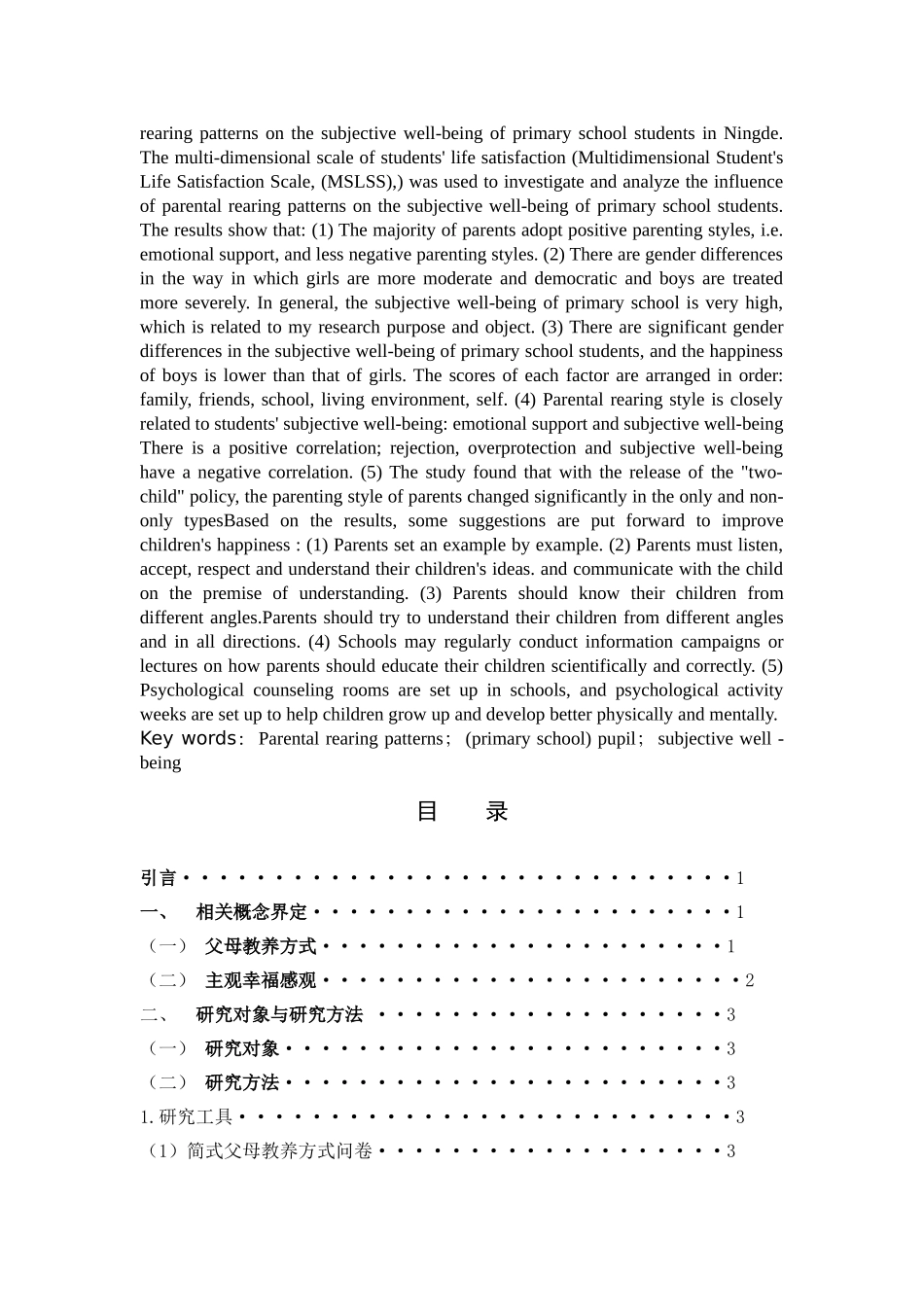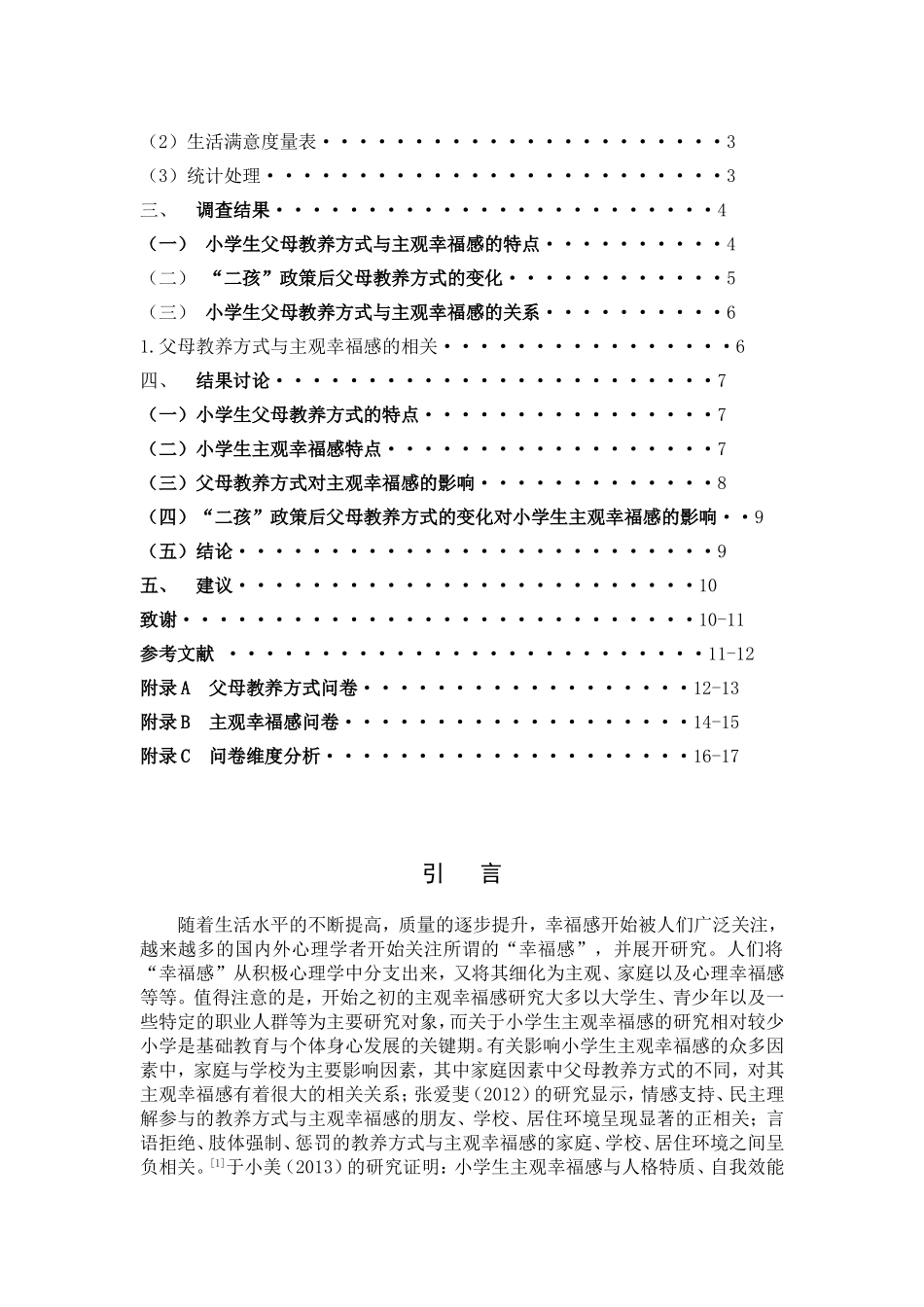摘 要研究主要采用蒋奖等人联合编译的中文版父母教养方式简式问卷和Huebner(2001)开发的学生多维生活满意度量表(Multidimensional Student’s Life Satisfaction Scale,简称 MSLSS),以宁德市某小学高年段学生为受试者,调查研究父母教养方式对小学生主观幸福感的有着怎样的影响。结果表明:(1)大多数父母采取积极的教养方式、即情感支持,消极的教养方式采用较少。(2)性别在教养方式中存在差异,女孩比较温和民主,男孩受到的待遇比较严厉。总的来说,小学的主观幸福感是很高的,这与我的研究目的以及对象有关。(3)小学生主观幸福感存在显著的性别差异,男孩幸福感低于女孩。各因子得分高低依次排列为:家庭、朋友、学校、居住环境、自我。(4)父母教养方式与学生主观幸福感密切相关:情感支持与主观幸福感存在正相关;拒绝、过度保护与主观幸福感存在负相关。(5)研究发现,随着“二孩”政策的放开,父母教养方式在独生与非独生类型上发生了明显变化。根据结果讨论提出一些有利于提升孩子幸福感的建议:(1)父母以身作则,做好榜样示范。(2)父母应该学会倾听、接受、尊重和理解孩子的想法,并且心理要在处于平等身份前提下与孩子沟通。(3)父母应该从不同的角度了解孩子。(4)学校可以定期开展有关父母亲应如何科学、正确教养孩子的宣传活动或讲座等。(5)学校开设心理咨询室,设置心理活动周等帮助孩子身心更好的成长与发展。关键词:父母教养方式;小学生;主观幸福感AbstractIn this study, the Chinese version of simple Parental rearing style questionnaire and Huebner (2001) were used to investigate and analyze the influence of parental rearing patterns on the subjective well-being of primary school students in Ningde. The multi-dimensional scale of students' life satisfaction (Multidimensional Student's Life Satisfaction Scale, (MSLSS),) was used to investigate and analyze the influence of parental rearing patterns on the subjective well-being of primary school students. The results show that: (1) The majority of parents adopt positive parenting styles, i.e. emotional support, and less negative parenting styles. (2) There are gender differences in...












